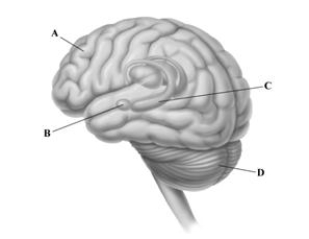Exam 6: Memory
Exam 1: Introductionand Research Methods552 Questions
Exam 2: Neuroscience and Behavior417 Questions
Exam 3: Sensation and Perception545 Questions
Exam 4: Consciousness and Its Variations439 Questions
Exam 5: Learning325 Questions
Exam 6: Memory337 Questions
Exam 7: Thinking Language,and Intelegance289 Questions
Exam 8: Motivation and Emotion406 Questions
Exam 9: Lifespan Development436 Questions
Exam 10: Personality224 Questions
Exam 11: Social Psychology433 Questions
Exam 12: Stress Health and Coping347 Questions
Exam 13: Psychological Disorders180 Questions
Exam 14: Therapies239 Questions
Select questions type
For most adults, earliest autobiographical memories are of events occurring between the ages of _____ and _____ years old.
(Multiple Choice)
4.8/5  (36)
(36)
At an auto parts store, Adam looked up the oil filter number in the parts catalog. Adam mentally repeated the number,PF3807A, as he searched the shelves for the correct oil filter for his car. Adam was using _____ to keep the information in his short-term memory.
(Multiple Choice)
4.8/5  (37)
(37)
Rather than simply repeating key terms and concepts, Jeremy focused on the meaning of the information in the chapter andtried to generate examples of concepts from his own experiences. Jeremy was using _____ to help encode information into his long-term memory.
(Multiple Choice)
4.9/5  (39)
(39)
For the majority of people, déjà vu experiences involve the common memory processes of absentmindedness and retrievalcue failure.
(True/False)
4.9/5  (43)
(43)
Identify the psychologist who is credited with originating the scientific study of forgetting.
(Multiple Choice)
5.0/5  (40)
(40)
Jean was extremely happy that she had finally passed the CPAexam and had landed a great job with a big accounting firm.As she was celebrating with family and friends, Jean recalled several other happy memories in her life. Jean's recall of other happy memories is an example of:
(Multiple Choice)
4.8/5  (44)
(44)
Psychologist Stephen Lindsay had participants look at their first-grade class photo and read a description of a prank they were led to believe they had committed in the first grade-putting Slime in the teacher's desk. Participants who looked attheir first-grade photo were much more likely to believe they had committed the prank than participants who did not look at their first-grade photo.
(True/False)
4.8/5  (39)
(39)
Mentally add 37 + 65, then subtract 11. To perform this task,the information must be held and processed in your:
(Multiple Choice)
4.8/5  (39)
(39)
Sensory memory briefly stores our sensory impressions of the world so that they overlap slightly with one another.
(True/False)
4.9/5  (31)
(31)
Therapy that involves the recovery of so-called repressed memories through hypnosis and other suggestive techniques can produce false memories that feel just as real as authentic memories.
(True/False)
4.7/5  (40)
(40)
Maintenance rehearsal focuses on the meaning of information and is useful for maintaining information in long-termmemory.
(True/False)
4.7/5  (48)
(48)
In the fMRI study described in the Focus on Neuroscience,"Assembling Memories," the act of perceiving a pictureactivated the visual cortex. However, the act of remembering the same picture activated the left prefrontal cortex, acompletely different brain area.
(True/False)
4.8/5  (47)
(47)
In the study in which participants sat briefly in a psychology professor's office:
(Multiple Choice)
4.9/5  (37)
(37)
 -The drawing depicts a left-side view of the brain. The leaderlines point to some of the key brain structures involved in memory. Identify the letter of the brain structure that isinvolved in encoding the emotional qualities of memories.
-The drawing depicts a left-side view of the brain. The leaderlines point to some of the key brain structures involved in memory. Identify the letter of the brain structure that isinvolved in encoding the emotional qualities of memories.
(Multiple Choice)
4.8/5  (38)
(38)
Recovery therapists have been criticized for using highly suggestive techniques, such as hypnosis, in trying to "recover"supposedly repressed memories of childhood sexual abuse.
(True/False)
4.8/5  (30)
(30)
Cued recall is a memory measurement that involves identifying an item of information in response to a retrievalcue.
(True/False)
4.8/5  (27)
(27)
Of all the regions of the brain, the cerebellum plays the mostcritical role in the encoding of new episodic memories and the transfer of episodic memories from short-term to long-termmemory.
(True/False)
4.8/5  (29)
(29)
Showing 61 - 80 of 337
Filters
- Essay(0)
- Multiple Choice(0)
- Short Answer(0)
- True False(0)
- Matching(0)